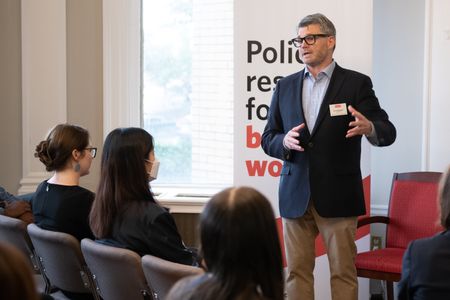Gallagher Comments on China’s Growing Influence on Global Economic Institutions in New Op-ed
Kevin P. Gallagher recently penned an op-ed titled “The China Lever,” for The Wire China, elaborating on China’s impact on major economic bodies, including the International Monetary Fund (IMF) and World Bank. According to the professor, China has been consistently boosting its countervailing power that it has demonstrated in different areas of global economics, including trade, investment, and lending.

“In a new book I have written with Gregory Chin titled China and the Global Economic Order, we trace how China slowly went from being a ‘rule taker’ within the U.S.-led Bretton Woods institutions such as the International Monetary Fund (IMF) and the World Bank, to a ‘rule maker’ outside that system,” said Gallagher. “That transformation has given China the leverage to now become a ‘rule shaker’ back inside those U.S.-led institutions.”
China ventured into the lending business with two of its development banks, and by 2016 were providing as many loans as the World Bank. The Eastern superpower then went on to co-found the Asian Infrastructure Investment Bank (AIIB) and the New Development Bank, prioritizing sustainable infrastructure.
“By the turn of this century China began to change its stance at both Bretton Woods institutions. China had graduated by then from low income country status (and from receiving the subsidized World Bank loans that come with it) and was well on its way to becoming the economic powerhouse it is today. At the World Bank and its counterparts, China began to argue for a greater voice and more representation, and for more of their financing to go towards infrastructure and industrialization.”
Thanks to China proliferating domestic and international progress, yuan has joined the ranks of elite currencies, including dollar, euro, and Japanese yen, bolstering its bargaining power in the IMF and World Bank. Naturally, the United States is resisting to keep China’s clout in check but Gallagher says that in the process of doing so America is undermining its legitimacy.
China has surprised the world by proving itself to be a formidable competitor that has bagged a spot on the table where usually the West used to call the shots. Pushing China out seems to be unwise as it would lead to a fragmented world order, forcing countries to pick a side, exacerbating global challenges, including fiscal stability and climate change. Gallagher states an alternative would be “to figure out a better way to work with China and other countries across the Global South and recraft a more inclusive and stable global economic order. It’s pretty clear which way things are heading — it’s high time the U.S. and others learned to adapt.”
To read the full article, click here.
Kevin P. Gallagher is a professor of Global Development Policy at the Frederick S. Pardee School of Global Studies at Boston University and the director of the Boston University Global Development Policy Center (GDP Center). He serves as the lead expert on Multilateral Development Bank Reform to the Brazilian Presidency of the G20. Additionally, he is a member of the Task Force on Climate, Development and the International Monetary Fund and a co-chair of the Debt Relief for a Green and Inclusive Recovery Project. Gallagher is the author or co-author of eight books, including China and the Global Economic Order (Cambridge University Press, 2025), The Case for a New Bretton Woods (Wiley, 2021), and The China Triangle: Latin America’s China Boom and the Fate of the Washington Consensus (Oxford University Press, 2016). To know more about his scholarly work and achievements, visit his faculty profile.